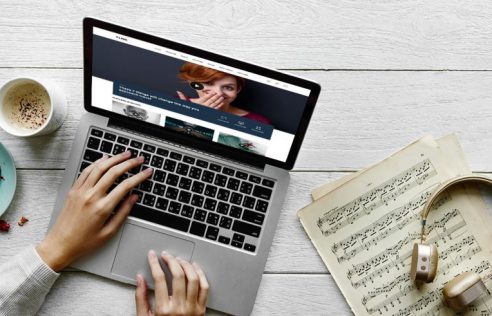As a classical musician, you know that copyright protection is important. After all, your music is your livelihood. If someone were to steal one of your pieces or even copy it without permission, you could lose out on valuable performance and recording opportunities. Copyright law gives you the legal right to control how your music is used and to be compensated for its use. Therefore, it’s essential to understand your rights under copyright law to protect your work and make sure you’re getting paid for its use. Here’s a look at what copyright protection entails for classical musicians.
Copyright laws and classical music: what you need to know
As a general rule, classical music is not protected by copyright law. This means that anyone can perform or record a classical work without obtaining permission from the composer or their estate. However, there are a few exceptions to this rule.
 One exception is if the work has been published within the past 70 years and the composer is still alive. In this case, the work may be protected by copyright, and you will need to obtain permission from the composer before performing or recording it.
One exception is if the work has been published within the past 70 years and the composer is still alive. In this case, the work may be protected by copyright, and you will need to obtain permission from the composer before performing or recording it.
Another exception is if the work has been published within the past 50 years and the composer has been dead for less than 70 years. In this case, the work may be protected by copyright, and you will need to obtain permission from the publisher before performing or recording it.
Finally, some works may be protected by other intellectual property laws, such as trademark or patent law. For example, a work may be protected by a trademark if it is used to identify a particular brand of products. If you are unsure whether a work is protected by copyright or another type of law, you should consult an attorney.
If you do need to obtain permission to perform or record a classical work, there are a few things you should keep in mind. First, make sure that you contact the right person. If the work is still under copyright protection, you will need to contact the composer or their estate. You will need to contact the publisher if the work has been published.
Second, be prepared to negotiate. For example, the copyright holder may charge a fee for the use of the work, or they may request that you make certain changes to your performance or recording.
Third, be sure to get permission in writing. This will help you avoid any legal problems down the road.
Finally, remember that even if a work is not protected by copyright law, the composer may still have moral rights in the work. This means they can object to how the work is used, even if it is not protected by copyright. For example, a composer may not want their music to be used in a film with a violent scene. If you are unsure whether the composer has moral rights in the work, you should consult an attorney.

Music in the public domain: what you need to know about copyrights
The world of music copyrights can be a confusing one, especially when it comes to the public domain. However, understanding copyrights is important for anyone who wants to use or create music.
Music in the public domain is music that is not protected by copyright law. This means that the music is free to use and distribute without permission from the copyright holder. There are a few ways that music can become part of the public domain:
- The copyright expires: In the United States, copyrights last for 70 years after the death of the composer. After this time, the music is considered to be in the public domain and can be used without permission.
- The copyright is forfeited: If the copyright holder does not renew the copyright after 28 years, the music enters the public domain.
- The copyright is waived: The copyright holder may choose to waive their rights and place the music in the public domain.
It’s important to note that just because music is in the public domain does not mean it is free to use without permission. In addition, there may be other restrictions on public domain music, such as performance rights. So, if you’re planning on using public-domain music, do your research and ensure you have all the necessary permissions.

